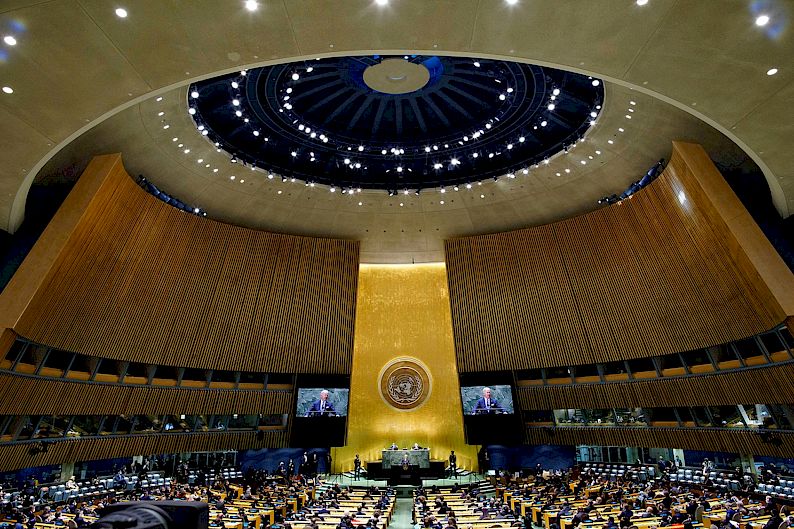What We're Reading This Week

Daniel R. Quiroga-Villamarín, The Graduate Institute Geneva
This week, I have been reading a lot of think pieces in preparation of the Global History and International Seminar I will be co-hosting with Dr. Ann-Sophie Schoepfel on the criminalization of aggression in international legal history. Interested readers may register here. I apologize for the focus on the international law blogosphere, but it has been a couple of busy weeks in our intellectual community.
Jennifer Trahan, “U.N. General Assembly Should Recommend Creation Of Crime Of Aggression Tribunal For Ukraine: Nuremberg Is Not The Model,” Just Security
In her short intervention, Trahan evaluates the proposal to create a Special Tribunal for Aggression against Ukraine against other institutional alternatives. Instead of defending the creation of such “Nuremberg-style tribunal,” she refreshingly highlights other institutional alternatives like hybrid judicial constellations.
Barrie Sander & Immi Tallgren, “Reflections on International Law(yers) and Putin’s War on Ukraine,” Völkerrechtsblog.
With the difficult situation that is unfolding in Eastern Europe, it has been easy for commentators to note that this is the end of the so-called “rules-based order.” Conversely, Sander & Tallgren argue that such order is working exactly as intended. This, in turn, forces us to reimagine this order -to come to terms with its focus on reacting to crisis and its mundane and everyday failings.
Ralph Wilde, “Hamster in a Wheel: International Law, Crisis, Exceptionalism, Whataboutery, Speaking Truth to Power, and Sociopathic, Racist Gaslighting,” OpinioJuris.
The specter of “whataboutery” has been haunting conversations about the role of the West in the current crisis in Eastern Europe. Across the board, calls to condemn Russian aggression against Ukraine have been met with solid ripostes of hypocrisy in relation to previous instances of Western aggression all around the globe. In this sense, Wilde’s think piece offers a timely dissection of calls (issued by Western scholarly associations) that ask Russian intellectuals to “speak truth to power.”
Zaib un Nisa Aziz, Yale University
Nick Serpe and Nicholaus Mulder, “The History of Sanctions,” Dissent Magazine.
Serpe interviews Cornell historian Nicholaus Mulder on his new book The Economic Weapon: The Rise of Sanctions as a Tool of Modern War (Yale University Press, 2022). Mulder traces the origins of sanctions to the interwar period and discusses the causes, intended and unintended, that this form of economic punishment had on global politics.
Tom Stevenson, “Things fall from the Sky,” London Review of Books.
Tom Stevenson reports from Ukraine, detailing the heroic effort of the Ukrainian people to defy the Russian occupation even as they struggle to survive the surreal awfulness of the war.
Jeffrey Gettleman and Monika Pronczuk, “Two Refugees, Both on Poland’s Border. But Worlds Apart,” The New York Times.
A young Sudanese man and a young Ukranian woman crossed into Poland. The young woman was welcomed by a Polish family. But the young man had to enter the country illegally and was beaten, abused and ostracized. Gettleman and Pronczuk detail their different experiences, illustrating the racialized conception of the modern refugee.